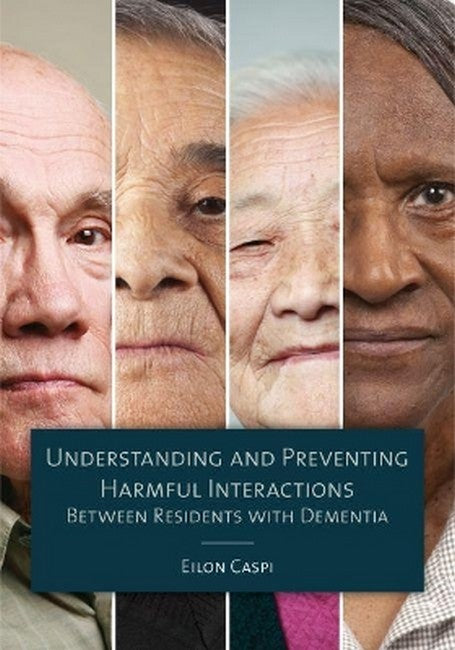Description
About the Author Foreword Preface AcknowledgmentsIntroduction SECTION I. SPECTRUM OF DHRRIS AND HOW TO APPROACH THEM Spectrum and Consequences Principles for Approaching DHRRIs SECTION II. CONTRIBUTING FACTORS, CAUSES, AND TRIGGERS Resident's History and Background Factors Situational Causes and Triggers Factors in the Physical Environment Factors Related to Care Partners SECTION III. PREVENTION AND DE-ESCALATION STRATEGIES Procedures and Strategies at the Organizational Level Proactive Measures Immediate Strategies During Episodes Post-Episode Strategies APPENDIX A. Assessment Tools and Processes for Prevention of DHRRIs Index
Eilon Caspi, Ph.D., is a gerontologist and dementia behavior specialist. He is the founder and director of Dementia Behavior Consulting LLC and a founding member, advisor, and board member of Elder Voice Family Advocates. He currently works as an assistant research professor at the Institute for Collaboration on Health, Intervention, and Policy, University of Connecticut. He serves as a board member of the Long Term Care Community Coalition (NYC). He worked his entire adult life in the aging field, starting as a nurse aide in 1994 in a nursing home where his grandfather lived. Both his grandmothers had dementia and lived in nursing homes. Over the years, he served in various roles, including social worker, consultant, applied researcher, educator, author, volunteer, and elder care advocate. Over the past 13 years, he developed and implemented a comprehensive program for the prevention of the prevalent and harmful phenomenon of resident-to-resident incidents in long-term care homes. He regularly presents on the phenomenon at local, state, national, and international professional and scientific forums, nursing homes, long-term care trade associations, the Alzheimer's Association (U.S. and Canada), the Veterans Administration, the Office of Ombudsman for long-term care, state survey agencies, and coroner offices. He co-directed the first documentary film entitled Fighting for Dignity on injurious and fatal resident-to-resident incidents in dementia (Terra Nova Films). He frequently gives interviews about this phenomenon with media organizations such as The Boston Globe, The Star Tribune, CBC News Canada, The Canadian Press, and Stuff New Zealand. In recent years, he dedicated his research and advocacy to the prevention of various forms of elder mistreatment such as neglect of healthcare, abuse, financial exploitation, and theft of opioid pain medications in assisted living residences and nursing homes. His passion is in bridging between academic/research and care practice/policy. In his free time, he enjoys carving wood and has recently completed hand carving brain hemispheres and educational signs such as SEE ME Not My Dementia, JUSTICE OF ELDERS, ELDERS' VOICE, and ELDERS' LIVES MATTER. Eilon lives in West Harford, CT with his wife, two daughters, and their border collie.

